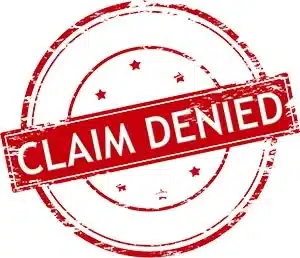How To Get Rental Car After An Accident
Unfortunately, car accidents remain a serious risk in our state. The Colorado Department of Transportation (CDOT) reports that more than 120,000 collisions occur every year.
Being involved in one of these crashes can affect your life in many different ways, including taking away your mode of transportation. The good news is that if you were involved in an accident that was not your fault, you are entitled to receive a comparable rental car.
However, actually getting a reliable rental can sometimes prove to be challenging. Here, our experienced Colorado Springs car accident lawyers explain how to get a rental car after an accident.
Obtaining a Rental Car After an Accident: Three Scenarios
No one wants to pay for someone else’s mistake. Under Colorado’s comparative negligence law, the party who was ‘at fault’ for an auto accident is responsible for covering any damages related to the crash. Rental car costs are a legitimate economic damage. This means that your rental car should be covered by the insurance company of the at fault driver.
However, in the real world, getting an insurance company payout is not always that easy. Indeed, in some cases, disputes arise over who was to blame for a crash. Below we highlight the three most common accident scenarios and how you can pay for a rental car in each scenario:
- You were at fault for the crash
If you were at fault for the crash, you will be liable for the accident. This means that you will be responsible for paying for your own rental car. However, you may not have to do so out of pocket. You should always check to see if your own insurance policy offers rental reimbursement coverage. If you have this type of coverage, your rental costs may be covered regardless of fault.
- Another driver was at fault and their insurance company agrees to pay out
In this scenario, the other driver’s insurance company is responsible for paying your rental car costs without any undue delay. This means that the company should cut you a check and offer you immediate reimbursement, or even direct payment to the rental car company. Under Colorado law, you are entitled to rent a vehicle that is comparable in quality to that of your original vehicle.
- Another driver was at fault and their insurance company refuses to pay out
An opposing insurance company might refuse to pay for your rental car for two reasons, including that either:
- The company is still investigating the accident; or
- The company is fighting your claim and denying that their policyholder is at fault for the crash.
In either case, you should seek assistance from an attorney. You may still be able to get immediate coverage for a rental car from your own insurance company. Though, you may be required to cover the rental costs initially and work with your attorney to fight for full reimbursement for all of your damages from the negligent driver’s insurer.
Contact Our Colorado Auto Accident Lawyers Today
At McCormick & Murphy, P.C., our dedicated car accident lawyers have helped many injured victims obtain full and fair compensation. If you were hurt in an accident, we can help. Please do not hesitate to contact our team today at (719) 249-0541 to request your free case evaluation.
How To Get Rental Car After An Accident Q&As
What should I do if I have suffered a serious injury in my car or truck accident?
If you’ve suffered a serious injury in your car or truck accident, it’s crucial to seek medical attention immediately, document all injuries and damages, and consult with a personal injury lawyer to understand your rights and potential compensation.
How long do I have to file a lawsuit after a truck accident?
The timeframe to file a lawsuit after a truck accident varies by state. It’s important to consult a personal injury lawyer to understand the specific statute of limitations in your jurisdiction.
How to choose a personal injury lawyer for your claim?
To choose a personal injury lawyer for your claim, research their experience, check their track record with similar cases, read reviews, and schedule consultations to find the best fit for your needs.
How do I get rental car reimbursement not at fault accident?
To get rental car reimbursement for a not-at-fault accident, contact the at-fault party’s insurance company to file a claim. Provide necessary documentation and inquire about their process for approving a rental car.
How long will my insurance pay for a rental car after accident?
The duration your insurance will pay for a rental car after an accident depends on your policy’s rental reimbursement coverage. Typically, it lasts until your car is repaired or until you reach your policy’s coverage limit.
How can you get a rental car after an accident, and who pays for your rental car?
You can get a rental car after an accident by contacting either your insurance company or the at-fault party’s insurer, depending on who is at fault. The responsible party’s insurance typically covers the rental car costs.
Will insurance reimburse me for a rental car after an accident?
Yes, insurance will reimburse you for a rental car after an accident if you have rental reimbursement coverage or if the other party is at fault and their insurance covers it.
What happens after a car accident and you didn't add a rental car to your insurance?
If you didn’t add a rental car to your insurance and have a car accident, you might have to pay out-of-pocket unless the other driver is at fault and their insurance covers your rental expenses.





